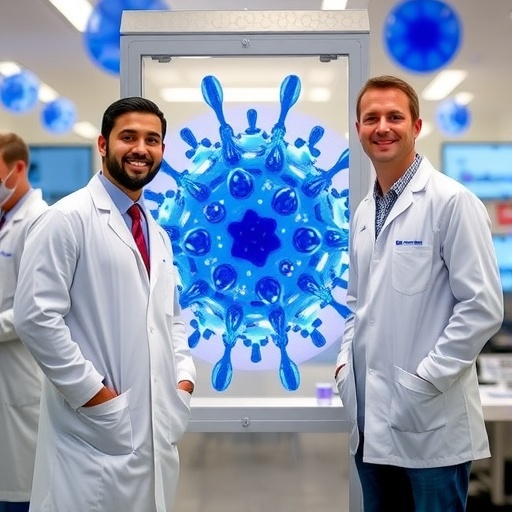Pushing the Frontiers of Gene and Cell Therapy: Mass General Brigham’s Breakthrough Research Unveiled at ASGCT 2025
The 2025 American Society of Gene and Cell Therapy (ASGCT) Annual Meeting in New Orleans has become a significant platform for ground-breaking advances in gene and cell therapy presented by leading researchers from Mass General Brigham and its dedicated Gene and Cell Therapy Institute. This emergence of innovative research is rapidly transforming the landscape of treatment for some of the most complex and devastating diseases, particularly those with unmet medical needs such as neurodegenerative disorders, rare genetic syndromes, and aggressive brain cancers.
Mass General Brigham’s Gene and Cell Therapy Institute, established in 2022, is a beacon of translational research that amalgamates the expertise of over 500 scientists and clinicians focused on charting new territories in genetic medicine. Their commitment to pioneering therapeutic modalities that transition from bench to bedside has been highlighted through a series of compelling presentations that showcase novel delivery systems, engineered vectors, and sophisticated cellular platforms capable of targeting diseases at the molecular and cellular levels.
Among the standout presentations is the study on optimizing focused ultrasound (FUS) parameters to enhance adeno-associated virus (AAV) vector delivery across the notoriously impermeable blood-brain barrier (BBB). The impermeability of the BBB has long posed a formidable challenge in delivering gene therapies to the central nervous system, restricting therapeutic efficacy. Researchers led by Bernie Owusu-Yaw, PhD, demonstrated that transient BBB opening with focused ultrasound coupled with microbubbles dramatically increased neuronal transduction without causing tissue damage. Intriguingly, their results suggest the complexity of BBB dynamics as the volume of barrier opening did not directly correlate with gene delivery efficiency, pointing to nuanced biological mechanisms that govern viral vector penetration.
Mass General Brigham researchers also introduced the RISE framework—proposed by Nandhitha Uma Naresh, PhD—to overcome translational bottlenecks that academic medical centers (AMCs) frequently encounter in advancing cell and gene therapies (CGTs). RISE advocates for four critical pillars: Resource sharing, Interdisciplinary collaboration, Sustainable funding, and Educational outreach. This strategic model underscores the necessity for comprehensive institutional support beyond mere funding, aiming to bridge the translational valley of death that hinders many innovative academic therapies from reaching clinical application.
Nick Todd, PhD, expanded upon the FUS paradigm with compelling preclinical evidence demonstrating the clinical translatability of combining focused ultrasound with a novel engineered AAV capsid, AAV.CPP16. This engineered capsid incorporates cell-penetrating peptides to enhance BBB penetration and neuronal tropism. Using a state-of-the-art human clinical FUS system, they successfully delivered the vector systemically in both rat and non-human primate (NHP) models. MRI-guided sonication with real-time feedback allowed precise opening of deep brain regions without hemorrhagic complications. The observed robust neuronal transduction at remarkably low viral doses bolsters the promise of this minimally invasive platform for treating neurological diseases with high spatial precision and safety.
On the pulmonary front, Yan Tang, PhD, unveiled pioneering gene replacement strategies for pulmonary lymphangioleiomyomatosis (LAM), a rare disease driven by mutations in tumor suppressors TSC1 or TSC2 leading to mTORC1 hyperactivation. Current FDA-approved treatments like sirolimus attenuate progression but fail to halt disease entirely, with many patients ultimately requiring lung transplantation. Utilizing lipid nanoparticle (LNP) technology to deliver functional mouse Tsc2 mRNA in a preclinical model, researchers accomplished significant tumor burden reduction. This LNP-based mRNA therapy restores tumor suppressor activity at the cellular level, highlighting a scalable therapeutic platform that could potentially revolutionize treatment for LAM and similar monogenic pulmonary conditions.
Beyond the scientific breakthroughs, the institute’s strategic vision and collaborative ecosystem are pivotal in catalyzing these innovations. By integrating clinical research, preclinical modeling, and advanced biotechnology, Mass General Brigham leverages the confluence of cutting-edge science and translational medicine. Their presentations at the ASGCT meeting not only showcase the feasibility and safety of sophisticated gene therapy delivery systems but also lay the groundwork for future clinical trials that will bring these promising therapies closer to real-world implementation.
In sum, the ASGCT 2025 presentations from Mass General Brigham reveal how advanced gene editing, novel vector engineering, non-invasive targeting strategies, and robust cellular platforms are transforming the therapeutic landscape. These innovations carry the potential to significantly improve patient outcomes across a spectrum of debilitating genetic and degenerative diseases, signaling a new era where the integration of gene and cell therapies will become a mainstay of personalized medicine.
Subject of Research: Gene and cell therapy advancements targeting neurodegenerative diseases, brain cancer, rare genetic syndromes, and pulmonary lymphangioleiomyomatosis (LAM).
Article Title: Pushing the Frontiers of Gene and Cell Therapy: Mass General Brigham’s Breakthrough Research Unveiled at ASGCT 2025
News Publication Date: 2025 (May 13-17)
Web References:
Mass General Brigham — https://www.massgeneralbrigham.org/en
ASGCT Annual Meeting Abstracts — https://annualmeeting.asgct.org/abstracts
Dropbox link to abstracts (provided in source content)
Keywords: Gene editing, Gene delivery, Medical treatments, Gene therapy, Focused ultrasound, Blood-brain barrier, CRISPR base editing, AAV vectors, Olfactory ensheathing cells, Pulmonary lymphangioleiomyomatosis, Lipid nanoparticle mRNA therapy, Cell and gene therapy innovation
Tags: adeno-associated virus vector deliveryASGCT 2025 conferenceblood-brain barrier challengesbrain cancer therapiesCell therapy advancementsgene therapy breakthroughsinnovative delivery systemsMass General BrighamNeurodegenerative disease researchrare genetic syndromes treatmenttherapeutic modalities in healthcaretranslational genetic medicine





